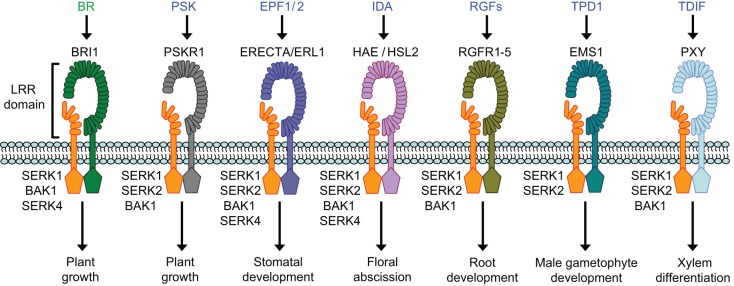Fig. 2.
SERK-associated receptor complexes in plant growth and development. Plant hormones (green) or endogenous signaling peptides (blue) are perceived by plasma membrane-localized receptors. In Arabidopsis, the SERK-family RLKs form ligand-induced complexes with the LRR-RLK-type receptors BRI1, PSKR1, ERECTA and ERL1, HAE and HSL2, RGFR-family RLKs, EMS1, and PXY to regulate a variety of plant growth and developmental processes. Individual SERKs have differential or specific contributions to a particular pathway. For example, SERK1 and SERK2, but not BAK1 or SERK4, are involved in male gametophyte development, whereas SERK1, BAK1, and SERK4, but not SERK2, contribute to BR signaling.

